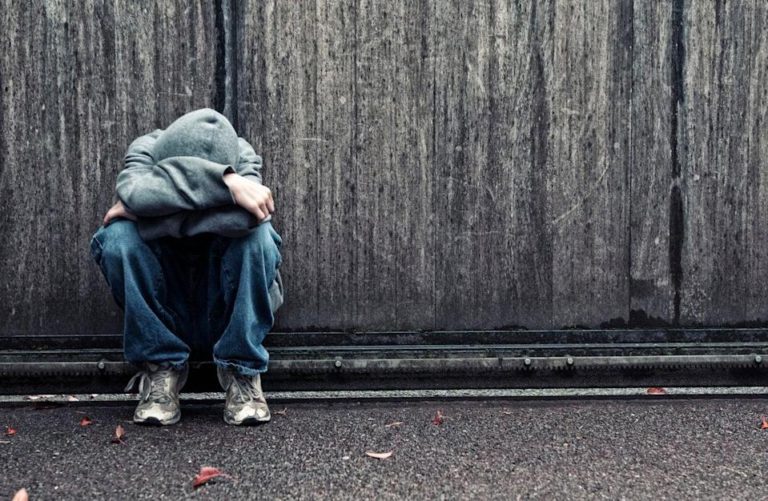

‘92 per cent of people with eating disorders do not have anorexia’
(Getty Images/iStockphoto)
This week is Mental Health Awareness Week, but as a gay man with an “invisible” eating disorder, you don’t hear that many stories about people like me.
That’s despite the fact that LGBTQ+ people are three times more at risk of eating disorders, according to new research – but we are still less likely to be understood.
Eating disorders have a well-defined stereotype, but this stereotype leaves out the vast majority of people who experience eating problems – including me.
After all, when you think of eating disorders, you might think of anorexia; yet 92 per cent of people with eating disorders do not have anorexia.
When you think of who might be at risk of an eating disorder, you might think of a middle class, white teenage girl, thanks in part to films and TV which depict sufferers in this way. Yet a quarter of people with eating disorders are male – and hospital admissions are rising at a faster rate among people from ethnic minorities, prompting concerns of cultural or racial factors.
Studies have consistently shown that LGBTQ+ adults and adolescents are at greater risk of developing eating disorders than their heterosexual and cisgender counterparts, but this is rarely considered in the conversation around eating disorders. This results in people like me feeling even more isolated and alone with our experiences, which are already difficult enough to live with.
LGBTQ+ people might find themselves more at risk of developing eating disorders for a number of reasons. Research tells us that experiences of discrimination, bullying, and pressures to conform to normative expressions of gender have been linked to increased risk of developing eating disorders – and I relate.
As a long-haired, lanky teenager who was bullied for looking “girly” and playing the violin, I believed that being conventionally masculine was important to being valued and accepted. Discrimination and bullying are society’s problem – but I didn’t know that. I thought I was the problem.
Then, on top of these social factors, there can be a whole additional set of pressures within LGBTQ+ communities themselves. It’s been incredibly difficult to recover from an eating disorder as part of a community of gay men; many of whom put inordinate pressure on themselves to achieve an idealised body type. When body image is your currency, who can blame anyone for going to whatever lengths they can to feel like they have worth?
Overexercising, inflexible eating patterns and muscle dysmorphia can be part of an eating disorder, too. Recent research has even linked the use of dating apps used by gay men with negative psychological outcomes – including an increased risk of disordered eating behaviours.
You’d think, then, that treatment for eating disorders would be geared up to accommodate these kinds of experiences. But in my own journey, I’ve found it hard to feel understood, even by the experts. As a teenager, my sexuality was used to write off my anorexia as something one doctor told me I would “grow out of” when I came to terms with being gay.
These kinds of assumptions shut down any opportunities to talk about sex, sexuality, libido – and all other kinds of experiences which may be involved in living with an eating disorder.
Being prescriptive about what can and can’t be talked about – and what is and isn’t part of an eating disorder – can leave people like me out. The last time I was referred to eating disorders services, I had to complete a form of more than 250 questions. None of them were about sex or sexual function. I’ve tried to talk about the pressures of the gay sex scene and how that relates to my eating difficulties in clinical settings, only to be shut down.
Research has also shown that creating an affirming environment for people from sexual minority backgrounds can improve experiences of treatment for eating disorders. But in my view, it shouldn’t take studies to show that using the correct pronouns or addressing specific problems faced by people in LGBTQ+ communities can help people feel understood and supported.
We already know that current treatment models for eating disorders are only moderately effective, with less than 50 per cent of people with anorexia or bulimia recovering fully. So, maybe it’s time for treatment providers to listen to diverse experiences and respond in a ways that feel relevant for people who don’t fit traditional presentations.
Understanding eating disorders amongst LGBTQ+ people like me is about recognising the whole array of factors that might be implicated in the most human of experiences: being in a body.
These can be different for everyone, but nobody should be left feeling like their experience is excluded or less valid than someone else’s, just because they don’t fit the stereotype.
Mental Health Awareness Week needs to be about dismantling these kinds of stereotypes so that we can all be part of the conversation – and people like me can get the help that we need.
Read More
In the battle of Kate Middleton vs Meghan Markle, it’s Kate who’s got the upper hand
After the Women’s Super League, Chelsea are on track to ‘win’ Europe
The sexist truth about gun violence a lot of powerful people don’t want you to know